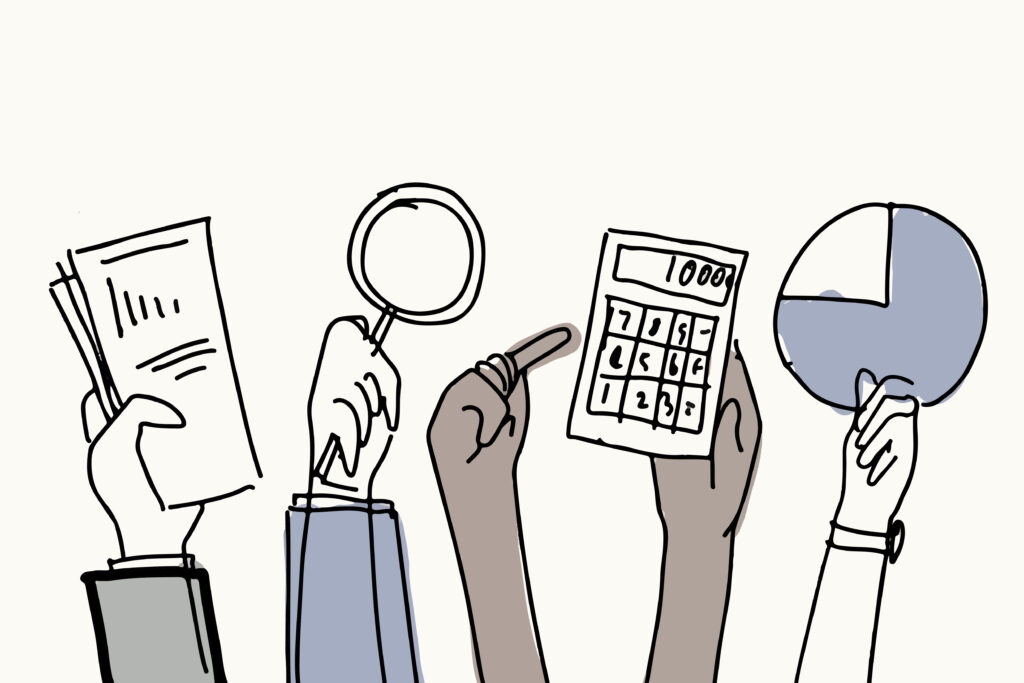Understanding Income Tax, NI and Other Payments

When you work and start earning over a certain amount, some of that money will be taken out of your wages before it even reaches your bank account. These deductions are your contribution towards certain things. As part of our Cost of Living Crisis campaign, we take a look at what these things are.
This article is also available in Welsh. I ddarllen y cynnwys yma yn Gymraeg – clicia yma
When you get paid, the amount you get paid (your basic pay) isn’t always the amount you get to take home (NET pay). There are certain things you have to pay for, depending on how much you earn. This is taken straight out of your wages before it reaches you. These can appear on your payslip as Income Tax, National Insurance, Student Loan and Pension contributions. Read on to find out what each of these means.
Income Tax
Income Tax is used to help pay for public services like the NHS, Education and the welfare system (benefits).
The amount you can earn before paying tax – the Personal Allowance threshold – changes yearly, but it was set at £12,570 for 2022/2023. This means you don’t pay any tax until you earn over £12,570 a year. You only pay tax on the amount above the threshold. If you earn £15,000 a year, you only pay tax on £2,430.
Most people working for an employer pay income tax before the money goes into their bank through a system called PAYE (pay as you earn). This is a system that an employer uses to take any Income Tax or National Insurance payments. How much is taken out is decided by your tax code. This is worked out by HMRC (His Majesty’s Revenue and Customs).
Make sure that your tax code is correct. You’ll get a letter from HMRC at the start of the year with your code. You can also find it on your payslip or your personal tax account. If your code is wrong (and this does happen), you could end up paying too much tax (and will need a refund) or not paying enough (and will have to pay it back). It’s your responsibility to check that your tax code is correct. Money Saving Expert has a tool you can use to calculate your tax code. They also have information about what the numbers and letters on your tax code mean.
If you’re self-employed, it’s your responsibility to pay your Income Tax and National Insurance. Find out more about this on the MoneyHelper website.
National Insurance
National Insurance (NI) is a tax on your earnings. It’s a contribution you make to get certain benefits (sick pay, maternity leave, unemployment benefits etc.) and the state pension (pension that everybody gets on top of your private pension).
You are given a NI number when you are 16. You can find it on your payslip, in any letters about tax or benefits, or in your personal tax account on the HMRC website. When you earn over a certain amount per week (currently £242), you’ll start making contributions.
Student Loan
If you had a student loan at College or University, you’ll start paying this back directly from your PAYE wages after you’ve finished your course and once your income is over £27,295 a year (the income threshold).
You’ll only pay back a percentage of the money you earn over the threshold above. If you’re making £30,000 a year, you don’t have to pay 9% of the whole sum. You only pay the difference between this and the threshold – so you only pay 9% of £2,705 over the year.
Most people will probably never fully pay back their student loan as it gets cancelled after 30 years (or when you reach 65 years old for some people). You don’t need to worry. A student loan isn’t treated the same as others debts. It won’t affect your credit score and doesn’t go against you when you’re trying to apply for a credit card or get a mortgage.
Pension Contributions
You might not be thinking of preparing for older age when you’re young, but the sooner you start making pension payments, the better. A pension is a type of long-term tax-free savings. This means that you don’t pay income tax on the amount you pay into your pension. Your pension will be given to you every month, similar to a wage after you retire. The more you pay in, the more you may get every month after you retire. You’ll also get a state pension (based on your NI contributions) when you reach state pension age, but saving for a private pension can make life more comfortable when you’re retired. You can also start claiming this pension sooner.
If you’re over 22 years old, you’ll be enrolled in your company’s pension scheme automatically, but you can choose to be enrolled (opt-in) when you’re younger than this. Most employers will contribute a sum of money towards your pension on top of what you contribute.
If you want help deciding what’s right for you, then MoneyHelper offers impartial, free advice and guidance on pensions. Check out all the details to contact them here.

Further help
Meic – someone that’s always on your side. If you’re struggling and need to talk to someone or just have a question you’d like answered, then you can contact Meic anonymously and free by phone, WhatsApp message, text or instant message from 8am to midnight every day of the year. We’ll talk through your options and help you find the best path for you going forward.
Apps and Websites to Help With the Cost of Living – Meic blog
MoneyHelper – a free service provided by the Money and Pensions Service. Making your money and pension choices clearer. Cutting through jargon and complexities, explaining what you need to do and how you can do it, putting you in control with free, impartial help that’s quick to find, easy to use and backed by Government. Chat with them online, message on WhatsApp +44 77 0134 2744 or call 0800 138 7777.
Turn2Us – a national charity providing practical help to people who are struggling financially.
Welsh Government: Get help with the cost of living – find out what financial support might be available to you, from water, electricity and gas bills, to housing and benefits, to school and higher education.
National Debtline – A charity offering free debt advice to people in the UK. They have a Cost of living hub with all the latest information about the help available.






















